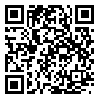Volume 9, Issue 2 (5-2025)
EBHPME 2025, 9(2): 78-86 |
Back to browse issues page
Download citation:
BibTeX | RIS | EndNote | Medlars | ProCite | Reference Manager | RefWorks
Send citation to:



BibTeX | RIS | EndNote | Medlars | ProCite | Reference Manager | RefWorks
Send citation to:
Khorrami K, Keshmiri F, Jambarsang S, Mokhtari M, Teimouri F. The Effect of Mobile-Based Learning on Cognitive Load and Learning in Environmental Health Education. EBHPME 2025; 9 (2) :78-86
URL: http://jebhpme.ssu.ac.ir/article-1-540-en.html
URL: http://jebhpme.ssu.ac.ir/article-1-540-en.html
The Effect of Mobile-Based Learning on Cognitive Load and Learning in Environmental Health Education
Environmental Sciences and Technology Research Center, Department of Environmental Health Engineering, School of Public Health, Shahid Sadoughi University of Medical Sciences, Yazd, Iran , f.teimouri1401@gmail.com
Abstract: (266 Views)
Background: The growth of educational technologies has led to the development of mobile-based education. The purpose of this investigation was to examine the influence of mobile-based learning (M-learning) on the cognitive load, learning, and satisfaction of students in environmental health Engineering (EHE).
Methods: The quasi-experimental study was carried out in X University of Medical Sciences. Students of EHE (n=30) participated in the intervention and control groups. In the intervention group, students were trained to use the mobile-based learning method(M-learning). Students in the control group participated in the traditional training. The students’ satisfaction and cognitive load were assessed using questionnaires. Students’ learning was assessed by multiple-choice questions with multiple answers. The data were analyzed using SPSS24 software.
Results: The results showed that students in the intervention group demonstrated 8.53±1.06 as learning scores, significantly higher than those of the control group (4.18±1.57). The intrinsic and extraneous cognitive load of the intervention group was significantly lower (P-values<0.001). The germane cognitive load was significantly higher in intervention students (P-values<0.001). Also, the results of the students’ satisfaction questionnaire showed that the participants were highly satisfied with the educational content, efficiency, and ease of use of the application (8.03±0.27), which was reported at a good level (level 6-8 out of 9).
Conclusion: The M-learning method is recommended as an effective tool for teaching the conventional activated sludge process to undergraduate environmental health engineering students. This method effectively creates a germane cognitive load by using game elements and facilitated learning at any time and any place.
Conclusion: The M-learning method is recommended as an effective tool for teaching the conventional activated sludge process to undergraduate environmental health engineering students. This method effectively creates a germane cognitive load by using game elements and facilitated learning at any time and any place.
Type of Study: Original article |
Subject:
General
Received: 2025/03/20 | Accepted: 2025/04/29 | Published: 2025/05/20
Received: 2025/03/20 | Accepted: 2025/04/29 | Published: 2025/05/20
Send email to the article author
| Rights and permissions | |
 |
This work is licensed under a Creative Commons Attribution-NonCommercial 4.0 International License. |







